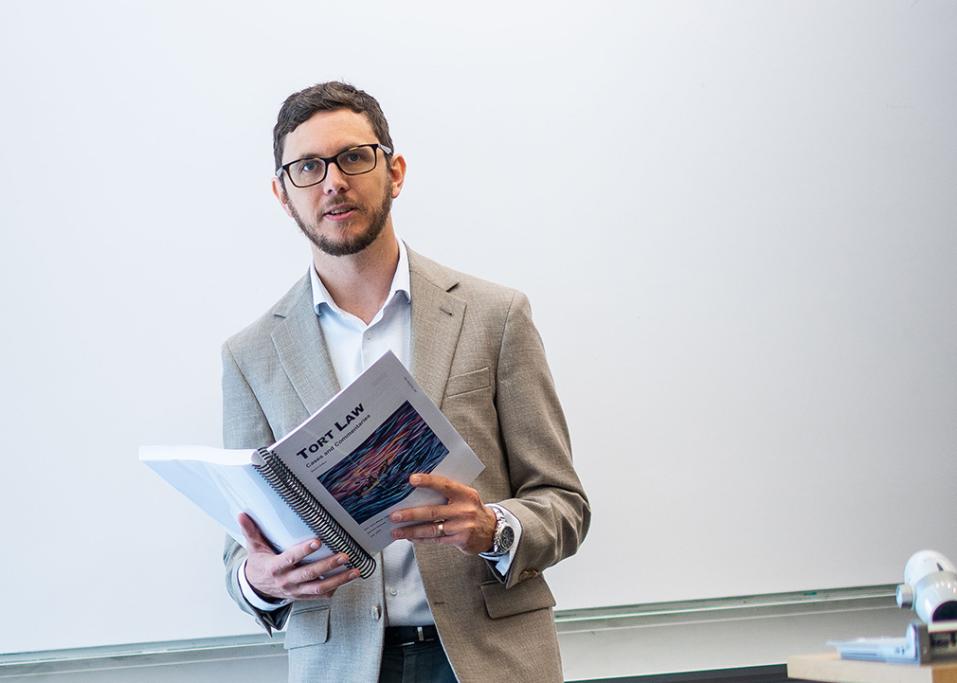
In 2020, months into teaching tort law at the Peter A. Allard School of Law, Assistant Professor Dr. Samuel Beswick was struck by inspiration. With new judgments being decided every day and freely accessible online, he wanted to break away from the commercially published casebook model and bring the law to his students in an open educational medium.
With the help of his JD research assistant Maddison Zapach, Dr. Beswick embarked on a project to create Canada’s first online open-access torts casebook—a format enabling him to innovate both in the selection of civil wrongdoing cases his class would study, and in the way students would access them.
“I wanted to customize my materials, and there were a couple of themes that I wanted to convey through the subject, such as the idea that we’re all supposed to be equal under the law,” Dr. Beswick explains, noting that when he studied law in his home country of New Zealand, course readings were typically a set of photocopied or printed cases and articles assembled by the professor.
In North America, printed and bound casebooks are the standard which, says Dr. Beswick, are not only cumbersome and costly for students but can be more limiting to teach from. “As a student, I was used to reading a ramshackle compilation of whatever a professor put together, and I quite liked that,” he shares. “An off-the-shelf copy has to be replaced with each new edition, and the copy is not easily customizable if you want to supplement or change up your own teaching.”
Redefining the casebook
Rather than revert to spiral-bound printouts, however, Dr. Beswick built an entirely new kind of casebook—one that is freely available to students and the public in online, PDF and ePub formats, and which is more interactive and flexible than printed materials alone. In the summer of 2021, he published the first edition of Tort Law: Cases and Commentaries on CanLII, available to anyone with an internet connection. All that’s required to update it is to edit a Word document and reupload it—which Dr. Beswick has already done, publishing the second edition in the summer of 2022.
There is more than just its format setting it apart from other casebooks. For one thing, it’s packed with edited cases from around the common law world, rather than only from Canada. “One of the unique things about Commonwealth common-law systems is that, when courts encounter new issues, it’s normal for judges to look to other jurisdictions to help them find the answers,” Dr. Beswick notes. He pulled in cases from jurisdictions like India and Hong Kong, including some in which judges analyzed judgments from Canada to help them reach a resolution. “I thought it would just be really cool to show the students that that is part of the nature of common-law reasoning around the world.”
Please visit UBC Today to read the full story.
Through Strategy 11: Education Renewal, UBC is committed to facilitating sustained program renewal and improvements in teaching effectiveness.